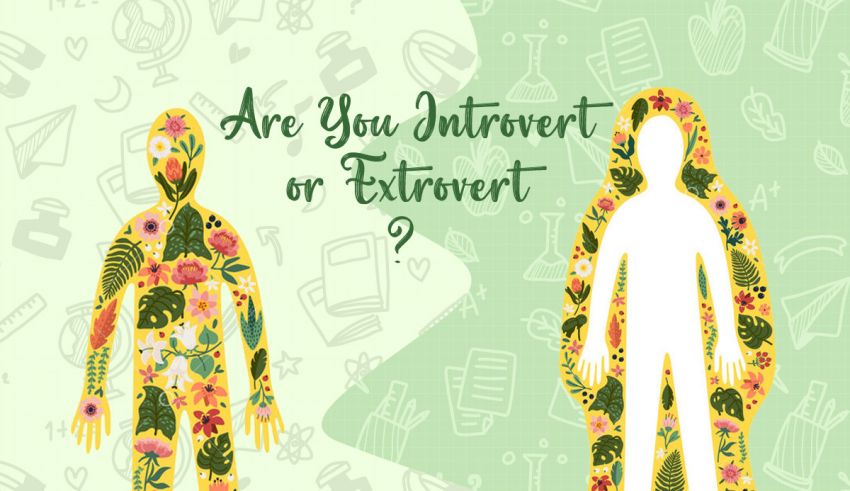Find out if you are an introvert, extrovert, or ambivert by taking this quiz. A whopping 50% of people identify as ambiverts. Respond to 20 short questions to learn.
An Introversion or Extroversion Test that Has Been Approved by Psychologists
The test on this page determines if you are extroverted or introverted using empirical data from studies like Freyd’s 1924 study. To activate the four cognitive functions, it replicates social settings (feeling, thinking, sensation, and intuition). The final analysis is based on the theories of Jung and Eysenck. (More below on this.)
Did you know that being extroverted makes you more pragmatic? To find out for yourself, take the Visionary vs. Realist test.
The Test Is Based on the Work of Jung and Eysenck
The concept of extroversion/introversion was first articulated by Carl Jung, the father of analytical psychology. Hans Eysenck, however, expanded and added to his idea in the 1960s. The exam on this page was made using the models from both of the aforementioned psychologists.
Jung’s theory
Where people’s focus goes is what separates introverted from extroverted people. While the latter is more concerned with the outer world and other people’s emotions/thoughts, the former is more inward-focused. Notably, everyone possesses some degree of each of the aforementioned features. This means that neither introversion nor extroversion are absolutes.
Hans Eysenck’s theory
Han’s approach states that the primary distinction between the two groups is how they restore their mental energy. Brain activity is naturally lower in extroverts. In order to refuel, they expose themselves to social interactions. However, introverts already have highly functional brains. In order to preserve their mental energy, they must protect themselves from the outer world.
How Do I Interpret My Results?
#1: You Are an Extroverted Person
If the questionnaire gave you the extroversion diagnosis, you like being the center of attention. People like you love to be praised and seek out as much attention as they can. Additionally, you are more likely than the ordinary individual to speak up, think things through, and mingle.
#2: You Are an Introverted Person
If you scored high on the test for introversion, you are a reserved person with great listening skills. You could occasionally have a tendency to daydream. But only when asked do you offer any thoughts. It’s common for people like you to be more artistic and creative than others. Your long-term memory is generally trustworthy, and you can focus on your tasks with ease.
#3: You Are an Ambivert
According to positive psychology, between 50 to 66% of people identify as either extroverted or introverted. And this particular group is known as ambiverts. If so, you are neither a very gregarious person nor a complete loner. You exhibit some traits from both categories. However, they fit well with your personality.
Who Requires a Test?
Anyone interested in determining their personality type can take the Introvert or Extrovert Quiz. The test findings can also be useful to parents who are interested in their child’s traits.
Extroversion, Ambiversion, and Introversion (the 4 Cognitive Functions Model)
It is common practice to discern between extroverted, introverted, and ambiverted qualities using Jungian psychological functions. The fundamental sign of extroversion/introversion, according to Carl Jung, is whether the aforementioned attitudes are focused inside or outwardly. His concepts are illustrated in the following table.
Before taking the Introvert or Extrovert quiz, dispelling four myths
Popular psychologist Dr. Ramani Durvasula thinks there are a lot of myths about personality kinds. She contends that each category has advantages and disadvantages. You must therefore be honest about how they serve.
The four common misconceptions concerning Carl Jung’s theories are listed below.
- Extroversion is not superior to introversion, though.
Some people incorrectly link depression or antisocial behavior with introversion. Though the aforementioned individuals may exhibit either or both of the aforementioned features, they are not enduring. Extroversion also doesn’t naturally have any advantages over other personality types. Therefore, you are unable to (and should not) treat any of them differently.
- Undoubtedly, an introvert can excel as a leader.
“Introverted folks are tuned in with their workforce,” claims Dr. Ramani. They are therefore capable and trustworthy leaders. Contrary to conventional belief, people who are more introspective and have a less busy social life may also lead teams effectively.
- No, having a healthy relationship does not require having the same personality type.
The crucial query for many is, “Should I date an extrovert or an introvert?” However, there is no scientific evidence to support any benefit to dating a specific personality type.
- No, introversion and social anxiety are not the same thing.
No one category on this test is favored by QuizExpo. The Introverted or Extroverted Quiz is based on current scientific findings and acknowledged psychological theories. Although the findings are 100 percent accurate, we nevertheless advise you to see a psychiatrist so that you may better understand your thinking and personality.
For more personality quizzes check this: Fun Waifu Quiz.





